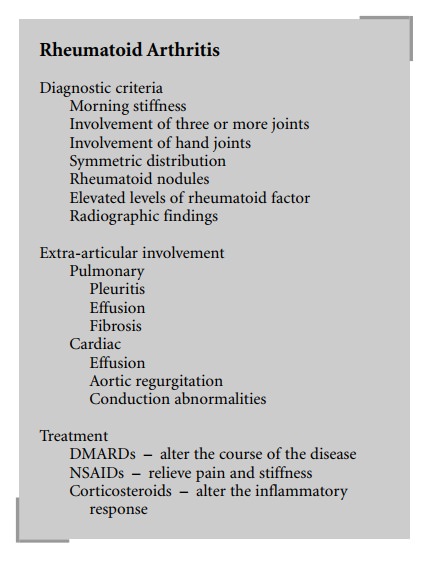Chapter: Clinical Cases in Anesthesia : Total Hip Replacement
What are the anesthetic considerations for the rheumatoid arthritis patient?
What are the anesthetic considerations for the rheumatoid arthritis
patient?
Airway
The RA patient may have atlantoaxial
instability of the cervical spine. Excessive manipulation of the neck during
endotracheal intubation or while positioning the patient can result in
devastating consequences such as atlantoaxial subluxation. Cricoarytenoid
arthritis presents with hoarse-ness, pain on swallowing, dyspnea, stridor, and
tenderness over the larynx. Erythema and edema of the vocal cords may result in
a narrowed glottic opening. Temporomandibular joint arthritis may limit mouth
opening.
Cardiac
Though common, cardiac complications rarely
necessi-tate intervention prior to the induction of anesthesia.

Many patients develop pericarditis and/or
pericardial effu-sion, which may progress to cardiac tamponade. Valvular
abnormalities develop secondary to rheumatoid nodules. Rheumatoid nodules may
be present in the conduction system of the heart resulting in dysrhythmias and
various degrees of conduction blockade.
Pulmonary
The most common pulmonary symptom is pleuritis
or pleural effusion. Rheumatoid nodules can be seen on pleu-ral biopsy.
Interstitial pneumonitis can be present and can ultimately progress to
pulmonary fibrosis. Small airway disease and emphysema can also occur in the
rheumatoid patient. Many DMARDs, including methotrexate, gold, and
cyclophosphamide, can cause interstitial lung disease.
Renal
Renal problems are rare in RA patients and are
usually related to treatment with NSAIDs or DMARDs. Amyloidosis may occur
secondary to long-standing inflammation.
Hematologic
Normochromic, normocytic anemia of chronic
disease is usually present. Patients may also have B12 and folic
acid deficiency.
Other systems
Vasculitis and cutaneous and ocular
manifestations may also be present. Peripheral neuropathy may be significant
due to local compression from synovial inflammation.
Related Topics